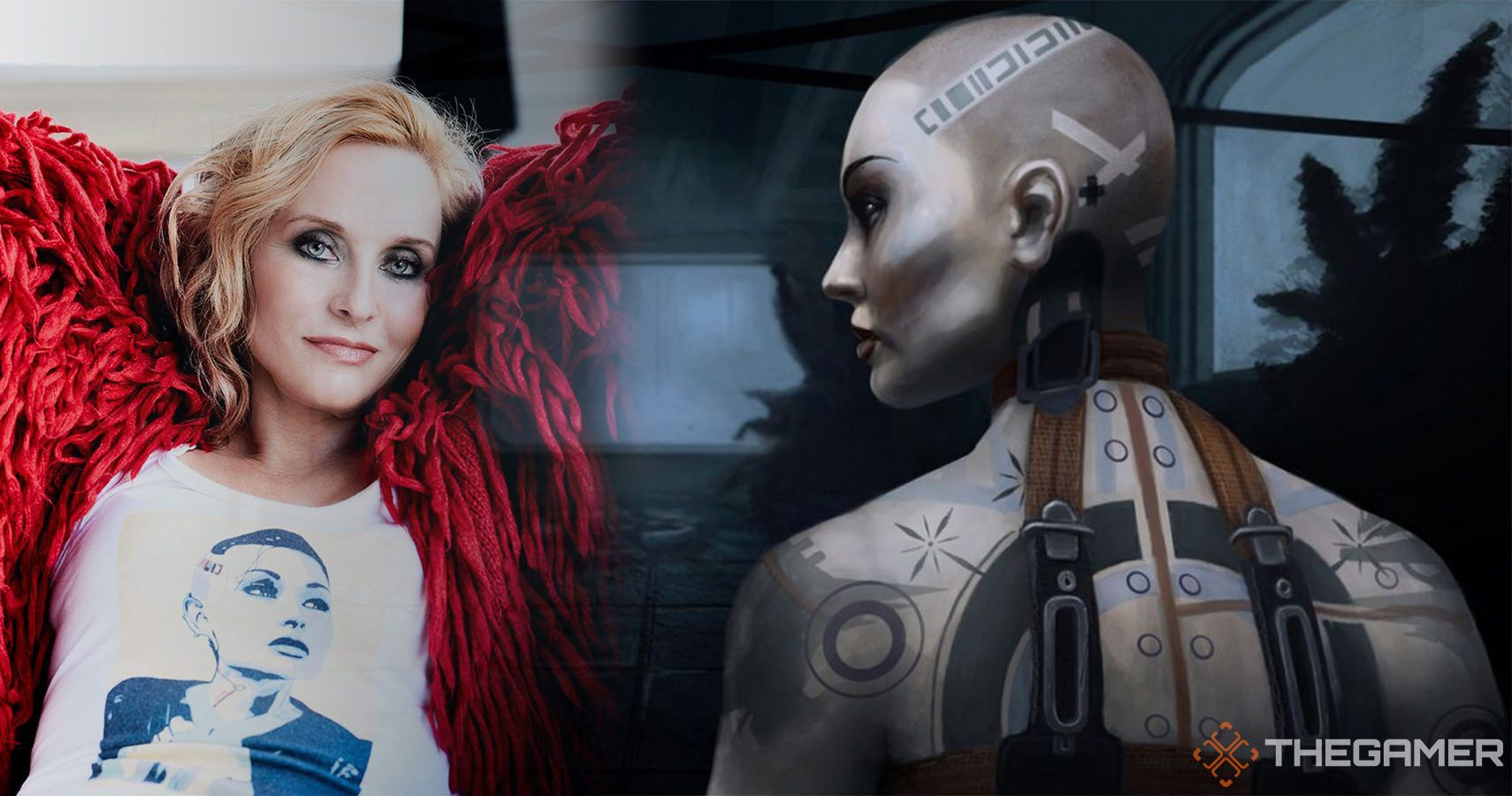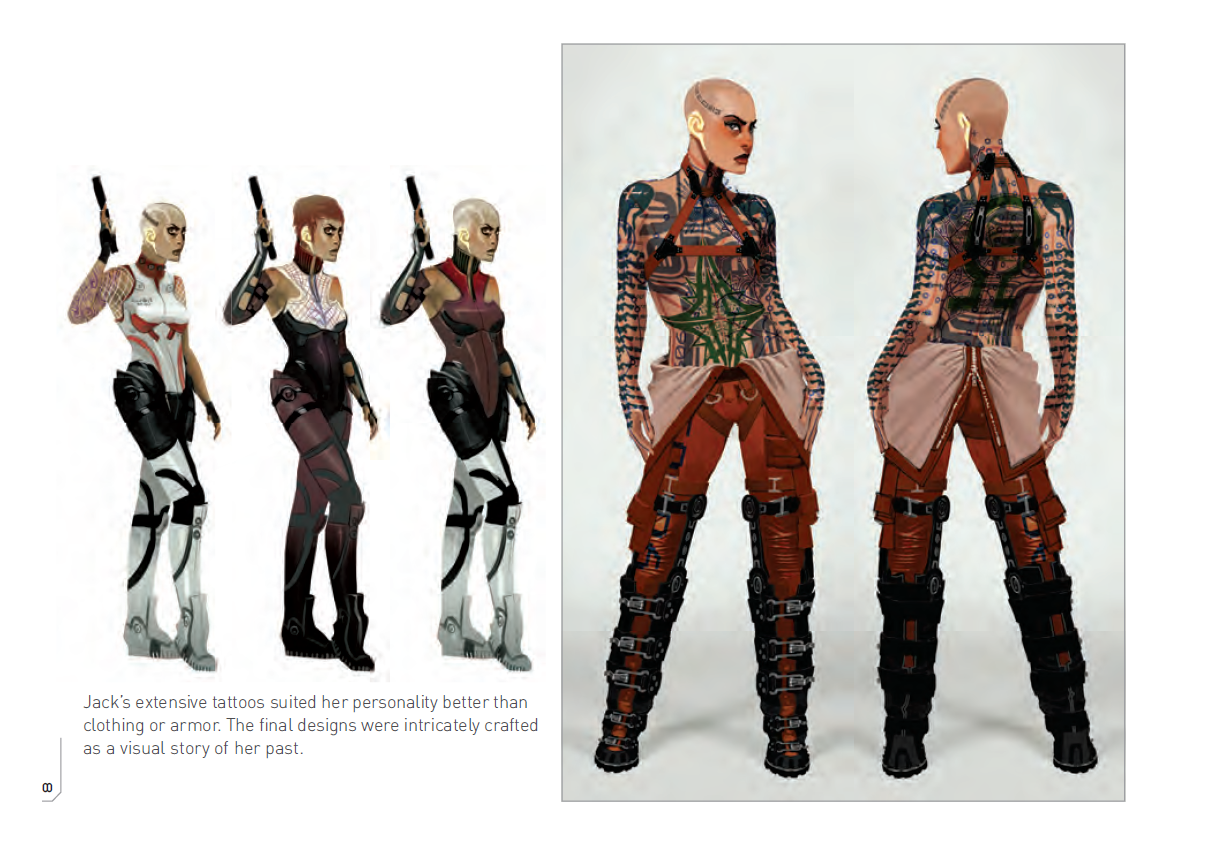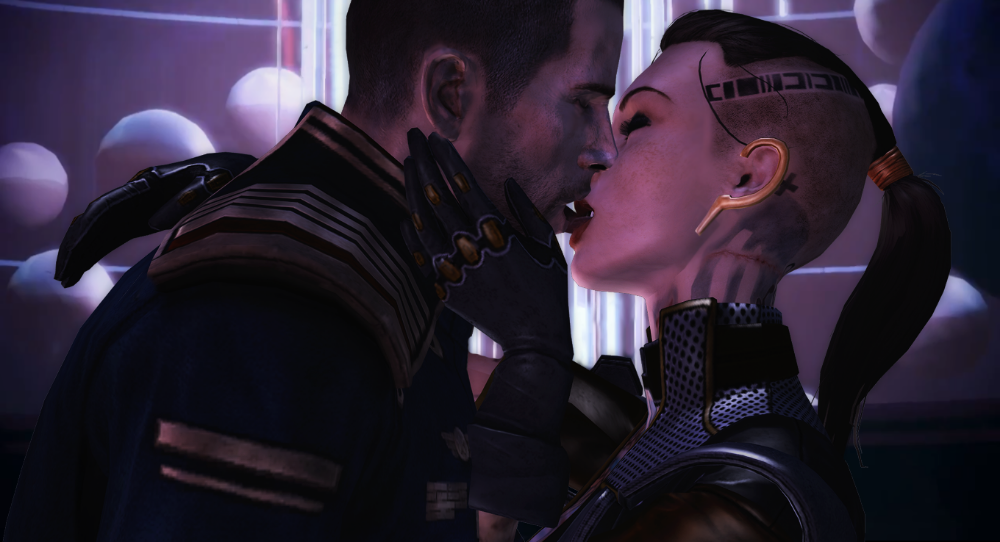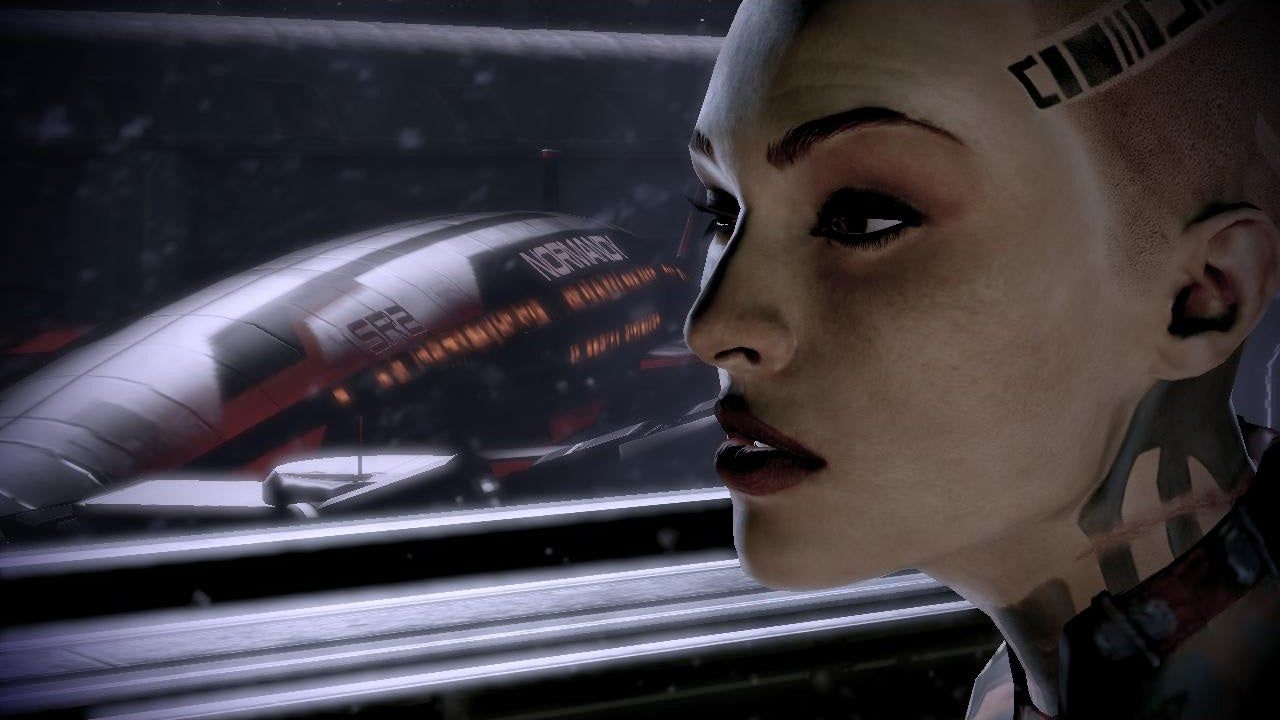Courtenay Taylor went to a school with a strict dress code. Unfortunately for them, she didn’t play by the rules.
“I can’t remember what colour I had dyed my hair at that point because I had all the colours, but I dyed [it] a particularly offensive colour and they told me I had to have a natural hair colour to attend class,” Taylor remembers. “So I cut off all my hair. They were like, ‘That’s not what we meant’. I was like, ‘Hey, man, this is how I came out’.”
Unsurprisingly, Taylor was asked not to return the following year. “The Dean of Students called me into his office and was like, ‘It’s been a ride, but we really don’t want you back next year’,” Taylor says. “I was like, ‘With pleasure, bye’. My appearance was a huge part of my identity and my creativity.”
At one point in her childhood, the actor’s mother tried to reason with her over her unconventional style. “I remember my mum telling me, ‘Sweetie, I appreciate that you’re creative in the way that you look, but people are mean to you and they don’t get a chance to see what a great person you are because they’re scared of the way that you look’,” she explains. “I remember just being like, ‘It’s a filter for me. If somebody can’t get past the way that I look with my mohawk and my black eye makeup, I don’t want to deal with them’.”
Some people had a similar reaction to Jack when BioWare first showed the character off in a series of spotlight trailers for Mass Effect 2. Taylor remembers reading the game’s forums after the reveal. “They were like, ‘I hate her, I’m going to shoot her out of the airlock’,” the actor laughs. “I already knew she was going to be a jagged pill for some because she wasn’t traditionally gorgeous, she wasn’t subservient, she’s got attitude, she’s bald. She wasn’t your classic game vixen, from the belt bra on her flatter chest to the tattoos. But I also knew from being that kind of girl when I was younger.”
Taylor slipped into Jack like she was a pair of baggy goth jeans, immediately relating to her from the moment she saw the game’s concept art.
“It felt like she was written for me,” she says. “It felt like ice skating right after they’ve gotten the zamboni out there, the ice is all smooth, and you’re just gliding. I don’t know if they took anything from me, or it was just a happy coincidence that she felt… so easy.”
Juhini from Star Wars: Knights of the Old Republic aside, most of Taylor’s previous roles were extremely Video Games™, like a Russian cosmonaut in Destroy All Humans and a sex worker in a cancelled 3DO game called The Four Horsemen of the Apocalypse. Mass Effect 2’s Jack was the first character who felt authentically human, with nuance, emotional range, and character flaws.
“The majority of the stuff that I had done were smaller characters that were very niche,” Taylor says. “This was my second experience with BioWare and with a character that felt really rich and rounded to me, and I had enough sessions to craft. She was also rooted in reality. I think that’s the great thing about Mass Effect - everyone in the game is so human, even if they’re not human. It’s rooted in the human experience.
“I was just shocked that she was so familiar to me. It was really lovely to have a character that was so easy. She talked like me, we had a lot of similarities in attitudes. When they showed me the artwork, I was like, ‘Oh, my god! I shaved my head in high school!’. We had a lot of similar facets - definitely the sort of spiky outside with the pudding cup inside.”
Taylor also likes to modify her clothes, and here was Jack - in all her glory - wearing belts as a bra. Her clothes look like she rigged them together herself while sulking in the bowels of the Normandy. Even their character arcs were similar.
“I definitely had a lot of problems when I was younger with having my emotions be too big for me - be it anger, sadness… mostly those,” Taylor laughs. “You know, not having the tools to cope with that. So to have a character who had such intense pain happen in her life, and how she had learned to cope with it was to just be a badass. Not that I’m a badass, but the attempt to be a badass - I could totally relate to that.”
Having met Taylor a couple of times, I can confirm she is absolutely a badass.
“Her foul mouth and just everything - it was really relatable,” Taylor remembers. “And I love that they gave her an arc where she learned how to put those emotions to positive effect, by being a teacher but still retaining her saltiness. But you can see that she learned how to show love and affection to people and to her [pet] varren.”
As Taylor says this, I can hear her dogs barking in the background as she sits on the wooden porch of her house.
“Of course she would have a rescue varren, and I have rescue dogs,” she says. “That [varren] was a complete nightmare, but she’s like, ‘It’s the cutest thing ever!’.
“The anger I felt as a teenager - getting into fights and all the stuff I did - if I had the opportunity to go back, I might have done [them] differently, but those things make you who you are. You can bring your experiences and decisions, bad and good, to your art, and it will strike a chord with people. They say “bring yourself, be yourself” and it made me wonder what space this part of my history belonged to. Now I feel like the things I look back on with a little bit of regret, they’ve actually been really rich soil for character creation.”
Mastering your emotions is key to the acting profession - a vocation where you’re sometimes asked to tap into your own trauma or to empathise deeply with fictional people. Like Jack, Taylor’s past became something she could control, like a superpower.
“I’m an actor who works in the moment, so I’m like, ‘You’re mad right now’,” Taylor tells me. “You get enough miles on the tyres, it becomes easier. But the emotional triggers are all the same. I have certain things that have happened in my life that are hot like fire for me. And so I can use those things when I need to - not to get too actor-y, but for substitution work, or ‘as if’ work.
“Being in touch with yourself emotionally [is important]. I’m not shy to say I’ve spent years in therapy. I feel like I’m pretty self-aware of my massive shortcomings and the ways that I react to things. I’m not perfect, but I’m aware of what they are. But personally, to be able to bring that stuff into the booth is gold. I’ve used stuff where it was like - as an example of substitution - losing my dog that I loved.
“Sometimes the writing is just gnarly. When we talk about Jack’s abuse as a child in the game, even the concept of that is just horrific. But then to also use some kind of substitution or not, and just imagine what it’s like to go through that horrific experience. It is emotionally draining. There have been sessions where I’ve dragged myself out afterwards or they’ve wrapped things up a little early. Good writing will wreck you. If you’re feeling things in the game, it’s because we’re feeling them in the booth.”
Studios that deal with heavy narrative games like BioWare understand the toll it can take on an actor - the emotional whiplash of a long booth session. And so they structure their sessions to make sure the performer isn’t thrown around too much.
“It’s really helpful if your director is like, ‘Hey, let’s not do the part where she loses her child right after she’s at the theme park’, or vice versa,” Taylor says. “It’s easier if you’re not doing standing long jumps in one direction and then another direction. Standing long jumps, you get no run up to it - I prefer to, like, pole vault for those big scenes.”
BioWare also had another trick for recording Mass Effect: a proprietary tool that allowed the supporting cast to hear the feeder line - read out in full, tone intact from Mark Meer and Jennifer Hale, who played Commander Shepard - before acting out their reaction. “Acting is reacting” is how the old adage goes, but voice acting isn’t always so. Where performance capture is a full theatre-style production, voice acting can be a lonely vocation. The director reads the protagonist’s line and you react, but you don’t know what the finished product will sound like.
“It was really helpful and I think that’s why Mass Effect meshed so beautifully with the character interplay,” Taylor explains. “BioWare was really brilliant that way and obviously had the budget to do it - it felt super nuanced to that particular keeper line, the way the player character said it.”
The setup from BioWare and the perfect marriage of personalities between Taylor and Jack led to one of the most memorable companions in a role-playing game. With a remaster on the horizon and a new game coming out at some point in the future, would Taylor jump into the baggy jeans for one last job?
“If I’m on my deathbed at 95 years old and somebody from BioWare came up and said, ‘Would you reprise Jack?’, I would rip out my breathing tube and make my way to a recording booth,” she says, laughing. “That’s how I feel about Jack.”








